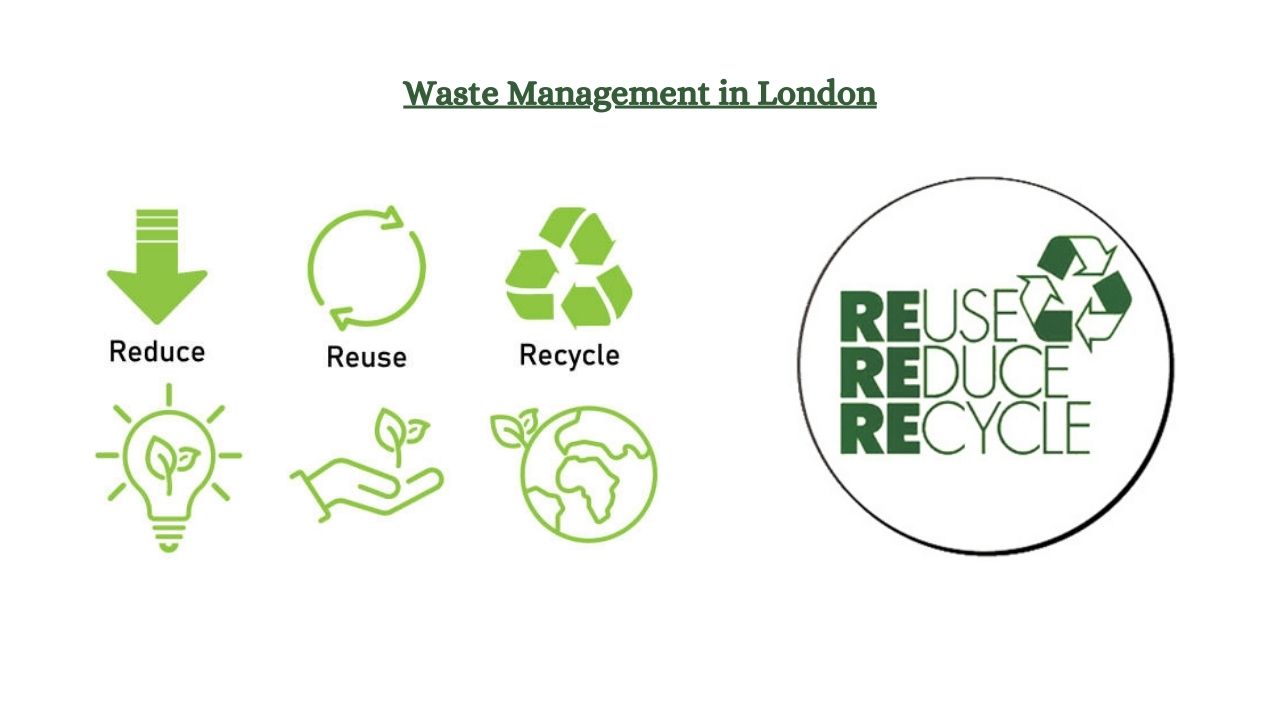Waste Management London involves the collection, transportation, and disposal of waste materials. It ensures the city stays clean and sustainable.
Efficient waste management in London is crucial for maintaining public health and environmental sustainability. The city generates vast amounts of waste daily, requiring organized systems for collection and disposal. Various methods, including recycling, composting, and landfilling, are employed to manage this waste effectively.
Authorities collaborate with private companies to optimize waste handling and minimize environmental impact. Residents and businesses play a vital role by following recycling guidelines and reducing waste generation. Effective waste management keeps London clean and contributes to reducing carbon footprints and promoting a greener future. By adhering to best practices, London can continue to lead in sustainable urban living.
Current Waste Management London Challenges
London’s urban growth leads to more waste. More people mean more rubbish, which puts pressure on waste systems. Keeping the city clean becomes harder. Recycling rates often drop. Space for new landfills is running out. Waste collection must be more frequent. Traffic jams make waste collection slow. Waste trucks add to pollution. Managing waste costs more money.
Public awareness about waste is low. Many people do not recycle. Some do not know how. Others do not think it is important. Schools need better waste education. Community events can teach about recycling. Clear signs on bins help people. Social media can spread the message. Good habits start at home. Parents should teach children about waste.
Recycling Initiatives
Community programs play a big role in waste management in London. Many neighborhoods have recycling drives and clean-up events. Schools also teach kids about the importance of recycling. Volunteers often help with these programs. They make sure everyone knows what to recycle.
Recycling centers are places where people take their recyclables. These centers sort and process paper, plastic, glass, and metals. Some centers even take electronics and batteries. It is important to know which items each center accepts. Many centers have drop-off points for easy access.
Organic Waste Solutions
Organic Waste Solutions offers efficient waste management services in London. Transforming organic waste into valuable resources, promotes sustainability and environmental health.
Composting Methods
Composting turns organic waste into useful soil. It reduces landfill waste. Home composting is easy. It uses food scraps and yard waste. Community composting serves neighborhoods. Large-scale industrial composting handles big amounts of waste. Both urban and rural areas benefit.
Biogas Production
Biogas is a renewable energy. It comes from organic waste. Anaerobic digestion breaks down waste without oxygen. This produces methane. Methane is used for electricity and heat. Biogas can also power vehicles. It helps reduce greenhouse gases. Farmers use it to manage manure. Cities use it to treat sewage. It’s a sustainable solution.
Technological Innovations
Smart bins use sensors to detect the level of waste inside. These bins send alerts when they are full. This helps reduce overflow and keeps streets clean. Smart bins also help in managing waste efficiently. They can be placed in busy areas for better results. Smart bins are part of a smart city initiative. This technology helps in saving time and resources. People find smart bins very convenient.
Waste-to-energy plants turn waste into electricity. These plants burn waste to create energy. This process helps reduce landfill space. Waste-to-energy is a renewable source of energy. It helps lower greenhouse gases. These plants can power many homes. Waste becomes a valuable resource. This method is eco-friendly and efficient. Many cities use waste-to-energy technology.
Government Policies
The government has strict regulations on waste management. These rules help keep the city clean. They make sure that waste is disposed of properly. Companies must follow these rules. Fines are given to those who don’t comply. This helps reduce pollution and protect the environment.
The government also offers incentives for good waste management. These include tax breaks and grants. Businesses can get rewards for recycling. Households may receive discounts on waste disposal fees. These incentives encourage everyone to manage waste better. They help promote a cleaner and greener London.
Corporate Responsibility
Companies in London adopt sustainable practices to manage waste. They focus on recycling and reducing waste. Using eco-friendly materials is key. Many firms invest in green technologies. These practices help the environment and save money.
Businesses form partnerships with waste management firms. These partnerships ensure efficient waste disposal. They work with local councils too. Together, they create better waste solutions. Partnerships lead to innovative recycling methods.
Frequently Asked Questions
How Can I Dispose Of Hazardous Waste In London?
To dispose of hazardous waste, contact your local council. They offer specific collection services for hazardous materials.
What Items Are Recyclable In London?
In London, you can recycle paper, cardboard, glass, metal cans, and certain plastics. Check local guidelines for specifics.
Where Can I Find Waste Collection Schedules?
You can find waste collection schedules on your local council’s website. They provide detailed information and collection dates.
Conclusion
Effective waste management in London is crucial for a cleaner, healthier city. By choosing reliable services, we can reduce environmental impact. Make sustainable choices to keep London beautiful. Proper waste disposal benefits everyone and protects future generations. Let’s work together for a greener London.


